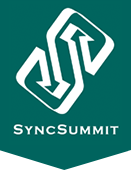By Mark Frieser.
Most people know me as the face and founder of SyncSummit, but I also work as part of a great team as a sync agent (through my other company Sync Exchange) representing labels and publishers that include South Korea’s YG Entertainment (BLACKPINK, CL, PSY), Japanese majors like Avex (FEMM, MONDO GROSSO) and JVC/Victor Entertainment (Chanmina, LOVE PSYCHEDELICO) India’s Times Music, Russia’s Melodiya and Brazil’s largest indie Som Livre, (and many more).
Personally, there’s almost nothing I enjoy more than working with music supervisors to help them find great music and clear it for their projects – it’s a bit like playing Watson to a music supervisor’s Holmes – digging deep into catalogues, assessing rights situations, budgets and in general working with the labels, publishers and artists we represent to bridge the gap between buyer and seller. And there’s nothing cooler than hearing the music you helped get into a project go live.
And that’s what this new series is all about – the role of a sync agent and what a sync agent does to help connect great music to, ads, TV, games, film and other projects.
But it can be a real slog getting rights cleared. I’ll explain
Many times, when you’re representing the masters of an artist or their catalogue, especially when they’re popular, few things are actually “one-stop,” meaning every time you clear it, you have to go back to the label and the publisher(s)/writer(s) with specific details for each individual usage, get approvals as quickly as possible, then come back (hopefully) to the music supervisor with a quote that meets their terms and budget.
It can be tedious, but if you have a good relationship with the labels/artists/writers/publishers you represent, the process is usually pretty quick, even with the labels and publishers half a world away. We (and all good sync agents) get things done quickly and correctly.
But what happens when we do our part correctly – we get approvals from the people we represent, but there’s a writer and/or publisher we don’t have an agreement with who no one knows how to reach or get hold of?
Or worse yet, the publisher doesn’t even know the writer is signed to them because of bad metadata, miscommunication or pure ignorance and can’t help?
That may seem impossible, but happens more often than you would think – and it is a real dilemma for both the sync agent and the music supervisor trying to clear the rights for a song.
You see, while master rights are usually pretty clear-cut and that’s the sync agent’s job to clear, when the music supervisor goes to clear the publishing rights, it can get messy really quickly, making it almost impossible to clear a song, and if you can’t clear the publishing, that makes it necessary for the music supervisor to move on to an alternative song – something you, as a sync agent want dearly to avoid.
So knowing something about who actually wrote a song – and who the publishers and writers are – even if you don’t represent them – can make all the difference in the world in terms of closing a deal.
A couple of times, after getting approvals from a label and clearing a master, because a publisher didn’t know the song was in their catalogue, who the writers were (or both), we’ve had to dive in with a music supervisor to find the right person – or persons – to contact to make sure publishing rights and writer approvals were secured.
And you know what? That’s really frustrating for two reasons.
First, publishers need to take it upon themselves (and yes, I know in many cases they do – I deal with great people every day) to make it easier for music supervisors and labels to know who controls the publishing on what songs for what markets.
Secondly, sync agents, for the most part, represent only master rights, so we’re not getting paid for any of the rights clearing assistance we give to clear publishing rights from the publishers. It’s a frustrating catch-22 – we want to close the deal on behalf of our client, and get our fee, but at the same time, a lot of the time, we also put money into the pockets of publishers who don’t pay us a penny for our efforts.
But we have no choice. No pub means no master means no deal. It’s our job to help the music supervisor get what they need and close the deal for our clients, so it’s a necessary part of the job to help chase down the rights we don’t represent or get paid a fee for clearing.
As to the future, I think there is great potential for enabling technologies like the Blockchain to make rights clearance more clear-cut, but that kind of market evolution is just getting off the ground, so for the moment, rights clearance will continue to be a lot of sleuthing, and searches and phone calls are going to continue to be an important part of the sync agent’s job.


